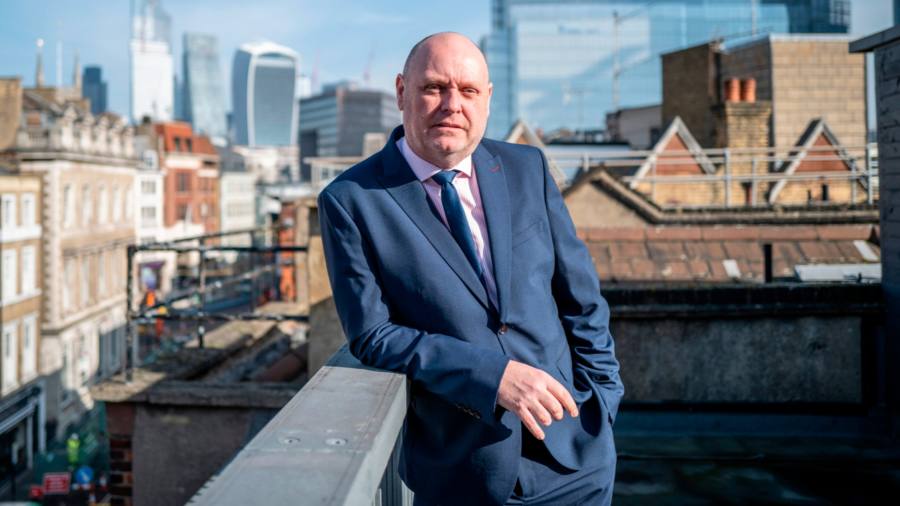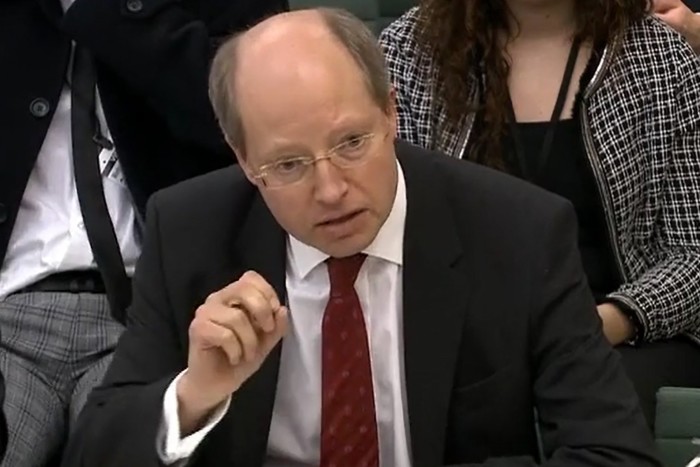
“Bruising” attacks on the competence, work ethic and neutrality of UK civil servants have put at risk ministers’ access to impartial advice, with “worse policy” the likely consequence, the head of the union for top-level officials has warned.
In an interview with the Financial Times, FDA general secretary Dave Penman blamed high turnover and low morale in the civil service on a “hammering . . . from the party of government”, with several senior officials pushed out.
“You just get this sense that the role that the civil service is there to play — giving its best professional and impartial advice — is not welcome,” he said.
Penman cited as the latest example of a “cowardly attack” an email signed by Suella Braverman to Conservative party members this month that accused officials of belonging to an “activist blob” over changes to asylum policy.
Braverman has denied seeing the message before it was sent, although Tory chair Greg Hands apologised for it. Penman said it was “extraordinary that a home secretary would issue such a careless and factually incorrect statement”.
He said staff had a “duty” to work on the agenda of the government of the day dispassionately, but added: “If you don’t support that — if you create actually an environment where that’s not welcome, indeed it can be career-defining if you give that impartial advice — what happens is you get worse policy.”
Penman’s comments follow a cooling of relations between ministers and civil servants, and criticism of the Labour party’s decision to poach as its chief of staff Sue Gray, the senior official who led the “partygate” probe into lockdown-breaking gatherings in Whitehall at the peak of the pandemic.
He conceded there were “legitimate” concerns around Gray’s appointment, but said the outrage and questions over her integrity from parts of the Tory party and some media commentators was “faux hysteria to try to discredit the . . . report that [Boris] Johnson asked her to do and he accepted in full”.
Civil servants have been among the hundreds of thousands of public sector workers to take part in strikes in recent months over pay, while in January FDA-affiliated staff on the elite Fast Stream programme, which prepares graduates for top roles, voted to walk out for the first time.
The “activist blob” attack echoes previous criticism by Tories, including a claim in 2018 by the Conservative MP Philip Davies that “London-centric Remoaners . . . in the civil service” had devised “dodgy figures” in a report on Brexit’s expected damage to the economy.

“The civil service has been through a bruising period since Brexit,” Penman said. “You’re dealing with this culmination of a period of time when they’ve been taking a hammering on all sorts of fronts — and now in terms of salary — from the party of government.”
As well as verbal criticism, several senior civil servants seen as insufficiently pliable have been sacked or pushed into resigning.
In 2021, Sir Philip Rutnam reached a six-figure settlement with the government after he claimed he had been unfairly dismissed as permanent secretary at the Home Office amid allegations of bullying by Priti Patel.
Meanwhile complaints of bullying by Dominic Raab, deputy prime minister, are at present the subject of an independent probe.
“We got to a point with ministerial conduct where the system couldn’t deal with it,” said Penman, adding that the claims made against Raab had become public because officials lacked alternative means of raising them.
The FDA has called for Raab to be suspended pending the outcome of the investigation by employment barrister Adam Tolley KC. Raab has insisted that he “behaved professionally at all times”.
The government said it had stressed that people in public life should treat others with “consideration and respect”, adding: “All complaints are taken extremely seriously with clear procedures in place to ensure they are handled with sensitivity and fairness.”

